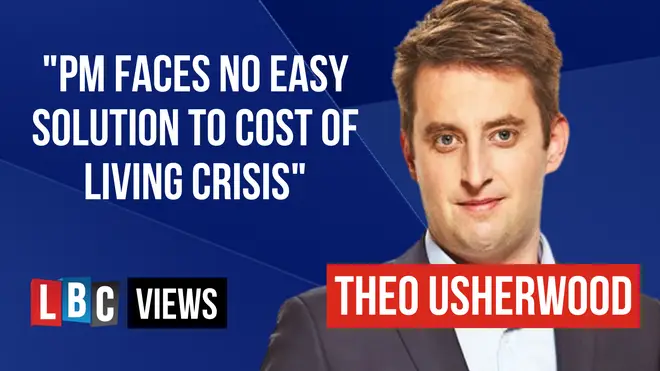
Oli Dugmore 4am - 7am
10 January 2022, 13:05

The problem with the cost of living crisis facing the Prime Minister is that there is no easy, simple and quick solution, Theo Usherwood writes.
In the next few months, millions of families are going to see their energy bills average out at £2,000, as the price cap is lifted and they see a hike which will run to several hundred pounds.
At the same time, National Insurance Contributions will rise by 10% from April, and that’s before you start talking about inflation north of 5% (The target is less than half that).
In short, if last year was tough for families – even relatively well-off families – then 2022 is shaping up to be even harder for millions of people trying to make ends meet.
The answers from Number 10, and Chancellor Rishi Sunak’s Treasury, have not been in plentiful supply.
Mr Sunak last week insisted the Budget rise in NICs was here to stay. Difficult decisions needed to be taken to protect the NHS, he said, and those difficult decisions were not going to be reversed.
A cut to VAT on energy bills? Perfectly possible now we’ve left the European Union. But, according to the PM, a bit of “blunt instrument”.
The Lib Dems and Labour have both suggested a windfall tax on the oil and gas producers, which could then be used to help those on the lowest incomes pay this winter’s energy bills.
Meanwhile, many Tory backbenchers would like the Government to ditch the various green levies that get passed on to consumers.
This idea is of course particularly tricky after we only hosted the COP26 climate summit last year. Suddenly ditching the means with which to fund green investment would not be a great look.
But the Government could possibly extend the Warm Homes Discount, not just in terms of the amount it offers the poorest, but also in terms of it taking in more of those on the low incomes.
The other option would be to make the tax-payer underwrite the costs of subsidising energy bills whilst there is a spike in the wholesale prices, allowing energy providers to draw on Government cash during tough times, only to pay that money back when the price drops again.
There are of course no guarantees that this will happen any time soon. And for those who are already finding it tough to balance the household books, the clock is already ticking down to when the next gas bill lands on the doormat.